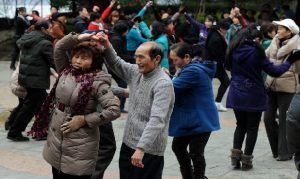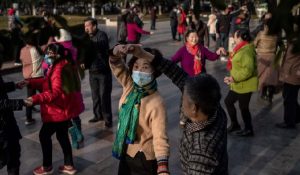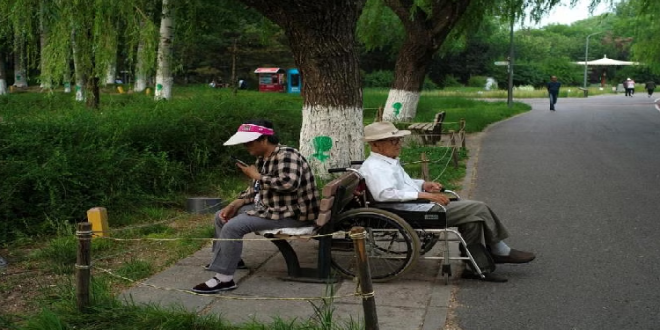24-07-2024
BEIJING: China will gradually raise its statutory retirement age in the next five years to try to cope with its ageing population and buckling pension system.
Life expectancy in the country has now risen above the United States, to 78 years, from just 36 years at the time of the Communist revolution in 1949 but China’s retirement age remains one of the lowest in the world at 60 for men, 55 for women in white-collar jobs and 50 for working-class women.
 The plan to raise retirement ages is part of a series of resolutions adopted last week at a five-yearly top-level Communist party meeting, known as the Third Plenum.
The plan to raise retirement ages is part of a series of resolutions adopted last week at a five-yearly top-level Communist party meeting, known as the Third Plenum.
“In line with the principle of voluntary participation with appropriate flexibility, we will advance reform to gradually raise the statutory retirement age in a prudent and orderly manner,” the party’s central committee said in a key policy document highlighting the reforms.
It did not specify how much the age of retirement would be raised and by when, but a China Pension Development Report released at the end of 2023 wrote that “65 years old may be the final result after adjustment”.
The plan has been on the cards for a few years, as China’s pension budget dwindles.
The state-run Chinese Academy of Social Sciences said in 2019 that the country’s main state pension fund will run out of money by 2035 and that was an estimate before the Covid-19 pandemic, which hit China’s economy hard.
At the same time, the country’s huge population has fallen for a second consecutive year in 2023 as the birth rate continues to decline.
The state-run Global Times newspaper quoted demographers in China saying that the plan to raise the age of retirement highlights “voluntariness” and “flexibility”, which shows that the authorities acknowledge there is no one-size-fits-all policy when it comes to retirement.
However the plan has drawn some scepticism on the Chinese internet.
“Those who wish to retire early are burnt out from their laborious jobs, but those who are in comfortable, lucrative roles will not choose to retire. What kind of jobs will the younger generation end up with?” one user wrote on Weibo, an X-like platform.
 Some said a delayed retirement would only mean delayed access to their pensions. “There is no guarantee that you would still have a job before the statutory retirement age,” one user wrote.
Some said a delayed retirement would only mean delayed access to their pensions. “There is no guarantee that you would still have a job before the statutory retirement age,” one user wrote.
China’s population has declined for a second consecutive year, underscoring concerns about the future growth of the world’s second-largest economy.
Data released on Wednesday showed a population of 1.409 billion at the end of 2023 – a 2.08m decrease from 2022. The most recent decline is double that of the previous year, which marked the first population drop in 60 years but experts say this fall is expected given the country’s expanding urban class and record-low birth rate.
Beijing on Wednesday said the birth rate was now down to 6.39 per 1,000 people on par with other advanced East Asian nations such as Japan and South Korea.
The country has seen falling birth rates for decades after imposing a controversial one child-policy in the 1980s to control over-population at the time.
The government lifted the policy in 2015 to try to stem the population fall, and has brought in a series of other incentives too, such as subsidies and payments to encourage people to start families. In 2021, it further relaxed the limit to allow couples to have up to three children.
However, the policies have had little impact, with young people in modern cities citing deterrents like the cost of living and career priorities after a three-year COVID period. (Int’l News Desk)
 Pressmediaofindia
Pressmediaofindia




